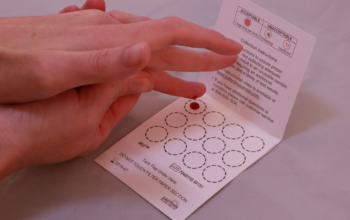Uzone.id — Have you ever wondered why you have your mom’s eyes or your dad’s smile? Or maybe you’ve noticed you have the same anger or sense of humor as your grandparents? Or maybe you questioned where your baby’s red, curly hair comes from.
Thanks to the genetics you inherit from your parents, which shape everything from your physical appearance to certain personality traits.
There are 20.000 genes in your body, and half come from your mom and the other half come from your dad, and that’s where your ‘characteristics’ come from.
“Each gene codes for one protein or substance, and this mix is the recipe for you—from hair color and eye color to height and predisposition to certain diseases,” said Heather Hampel, a genetic counselor at City of Hope Cancer Center in Duarte, California.
Of course, genes aren’t destiny, and only a small fraction of genes are completely penetrant, which means that if you inherit this gene, it will 100% express itself, says Hampel.
But which characteristics are influenced more by your mother or father? Then we’ll break down the science behind inherited traits.
What are inherited traits?
Inherited traits are characteristics that are passed down from your parents through their DNA. It’s the process where genetic information from parents is passed down to their children.
In one body, there are 23 chromosomes (the genetic material) from each parent making a total of 46 chromosomes.
“Within these chromosomes are the instructions which determine our traits/characteristics. For example, if we will have brown eyes or blue eyes,” said Centre of The Cell.
For example, you inherit half of your DNA from your mom and the other half from your dad, which is why you might have a mix of features from both.
DNA is like a recipe book that determines everything about us—from the color of our eyes to how tall we grow. Some traits are more dominant, meaning they’re more likely to show up, while others might be hidden but still passed on.
In simpler terms, you might not look exactly like your parents, but many of the traits you have are because of the genetic information they passed down to you.
Physical traits
When we think of inherited traits, the first thing that comes to mind is usually physical features. Let’s dive into some common traits you might have gotten from your parents:
Eye Color: Whether you have blue, brown, or green eyes depends on the combination of genes from your parents. Brown eyes are a dominant trait, meaning if one parent has brown eyes, you’re more likely to inherit them.

Hair Texture: Curly hair? Straight hair? That’s your parents’ genes at work. The texture of your hair is influenced by a blend of genetic factors from both sides of your family.
Height: How tall or short you are largely depends on the genes inherited from your parents. But remember, environment and nutrition also play a role, so it’s not just all about your DNA.
Freckles: Ever wondered why some people have freckles while others don’t? Freckles are inherited as a dominant trait, meaning if one of your parents has them, you’ve got a good chance of having them too.
Personality and Behavioral Traits
Here’s where things get interesting. While physical traits are easy to spot, personality traits can also be inherited, although it’s a mix of genetics and environment. For example:
Temperament: According to Dr. Robert Plomin, a leading behavioral geneticist, “Your basic temperament—whether you’re more introverted or extroverted—has a strong genetic component.” So, if you find that you’re naturally more outgoing like one of your parents, genetics might have something to do with it.

Musical or Artistic Talent: If your mom is a musician or your dad is a painter, there’s a chance you’ve inherited a bit of their creative spark. But remember, just because you have the genes doesn’t mean you’ll automatically be a musical genius—it also takes practice!
Sense of Humor: Believe it or not, your sense of humor might be linked to genetics. Some studies suggest that how you react to humor and what you find funny could have a genetic basis.
Health Conditions: What Runs in the Family

One of the most important reasons to know your family history is because certain health conditions can be passed down through generations. These include:
Heart Disease: If heart disease runs in your family, it doesn’t mean you’re guaranteed to have it, but it does increase your risk.
Diabetes: Genetics can play a role in your chances of developing Type 2 diabetes. If it runs in your family, you might want to keep an eye on your lifestyle choices.
Mental Health Conditions: Conditions like anxiety, depression, and even certain mood disorders can have a genetic link. If someone in your family has struggled with mental health, there’s a chance you could inherit a predisposition to it.
Dr. Sarah Jones, a genetic counselor, explains: “Knowing your family’s health history is key to understanding your health risks. It’s not just about inheriting traits like eye color—it’s also about being aware of potential health issues so you can take preventive measures.”
Unique and Surprising Inherited (future) Traits
There are also some less obvious traits that you can inherit from your parents. Here are a few surprising examples:
The Ability to Taste Certain Flavors: Ever wondered why some people love cilantro while others say it tastes like soap? That’s due to a genetic trait!
Resistance to Certain Diseases: Some people inherit genes that make them more resistant to specific diseases. For example, a mutation in a gene called CCR5 makes some people resistant to HIV.
From your eye color to your sense of humor, so much of who you are comes from the genes passed down by your parents. But it’s also important to remember that environment and personal experiences play a huge role in shaping you, too.
















